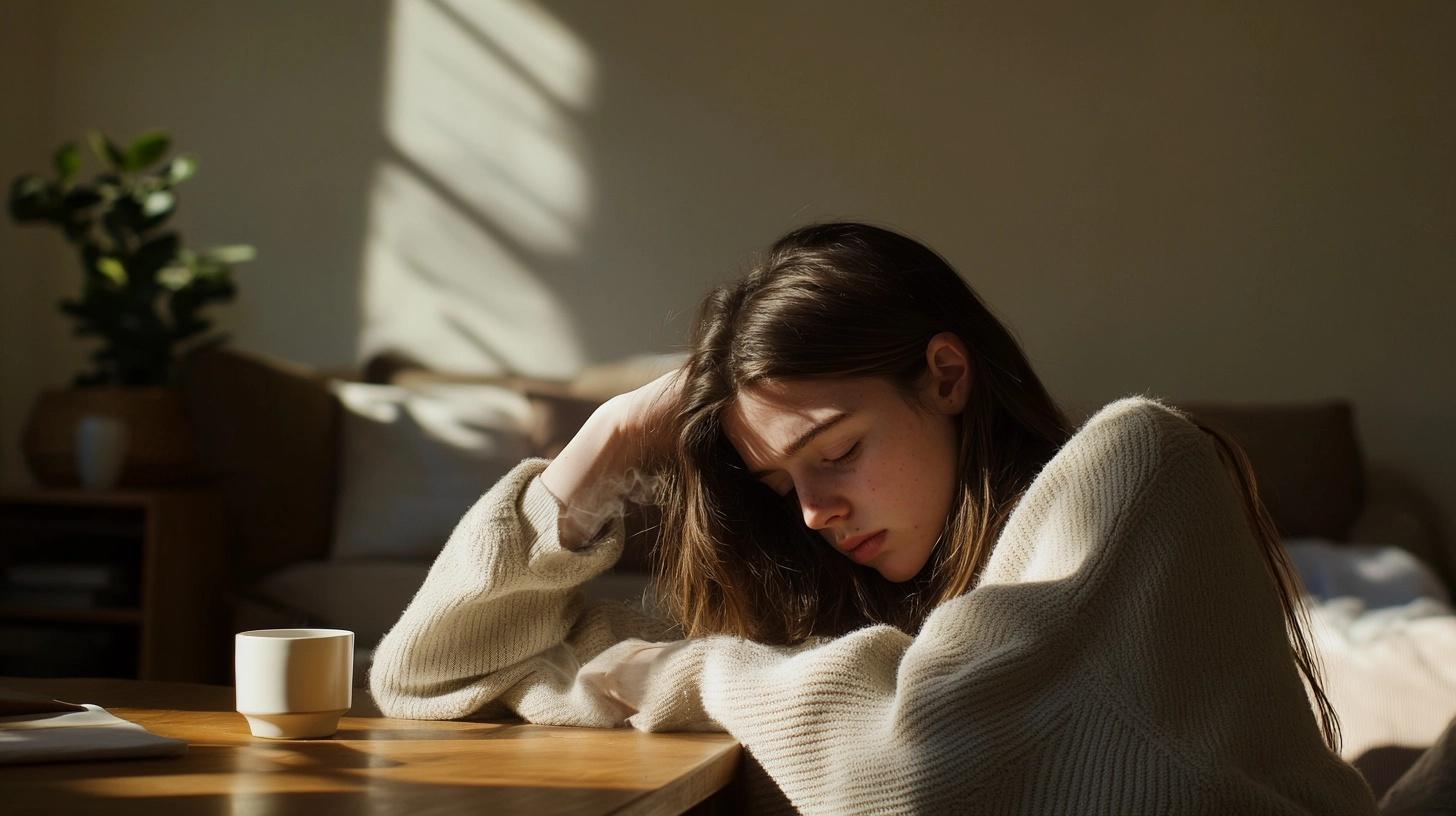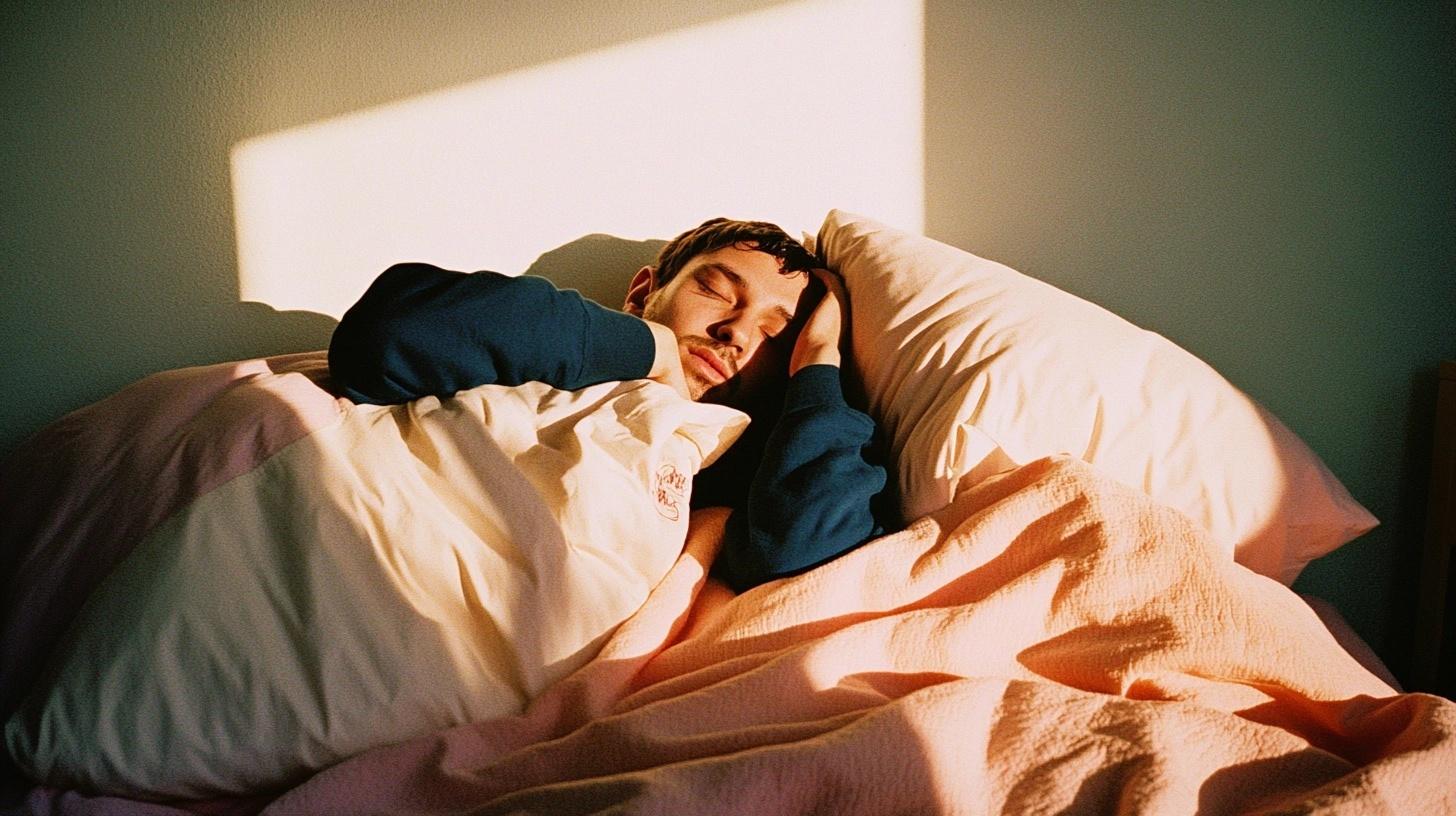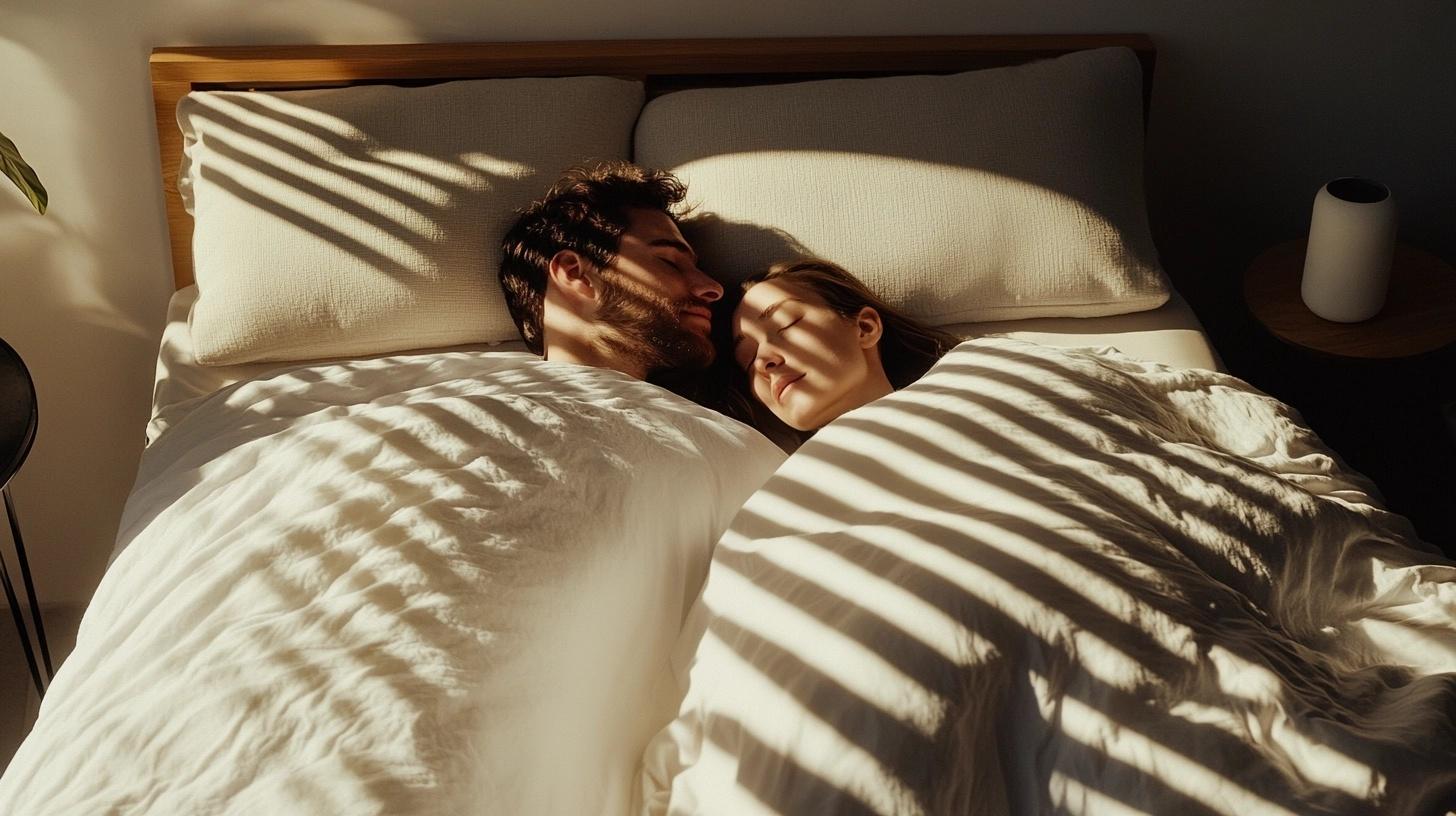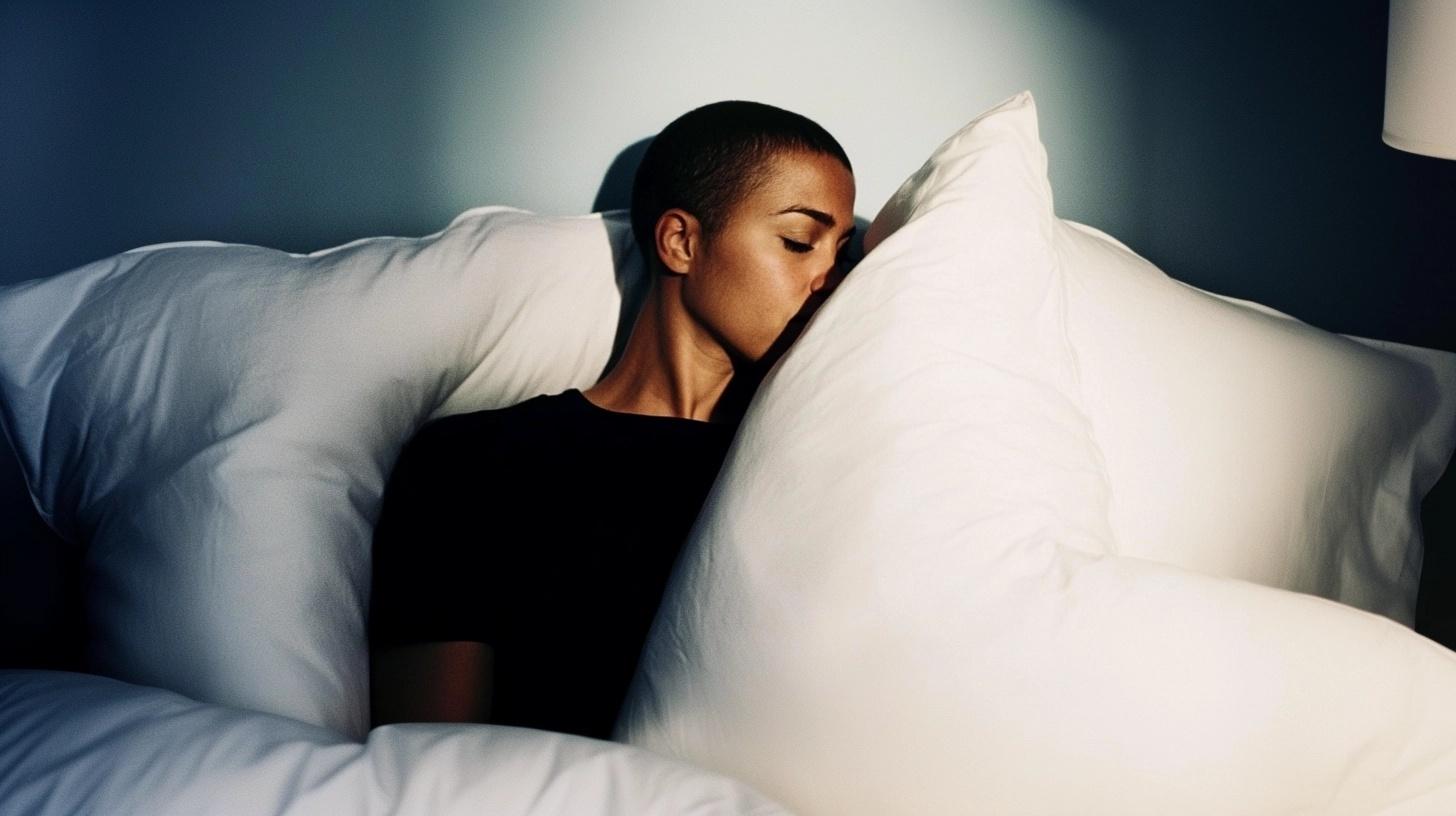"Why do I sweat in my sleep?" - We answer your top night sweats questions
Published
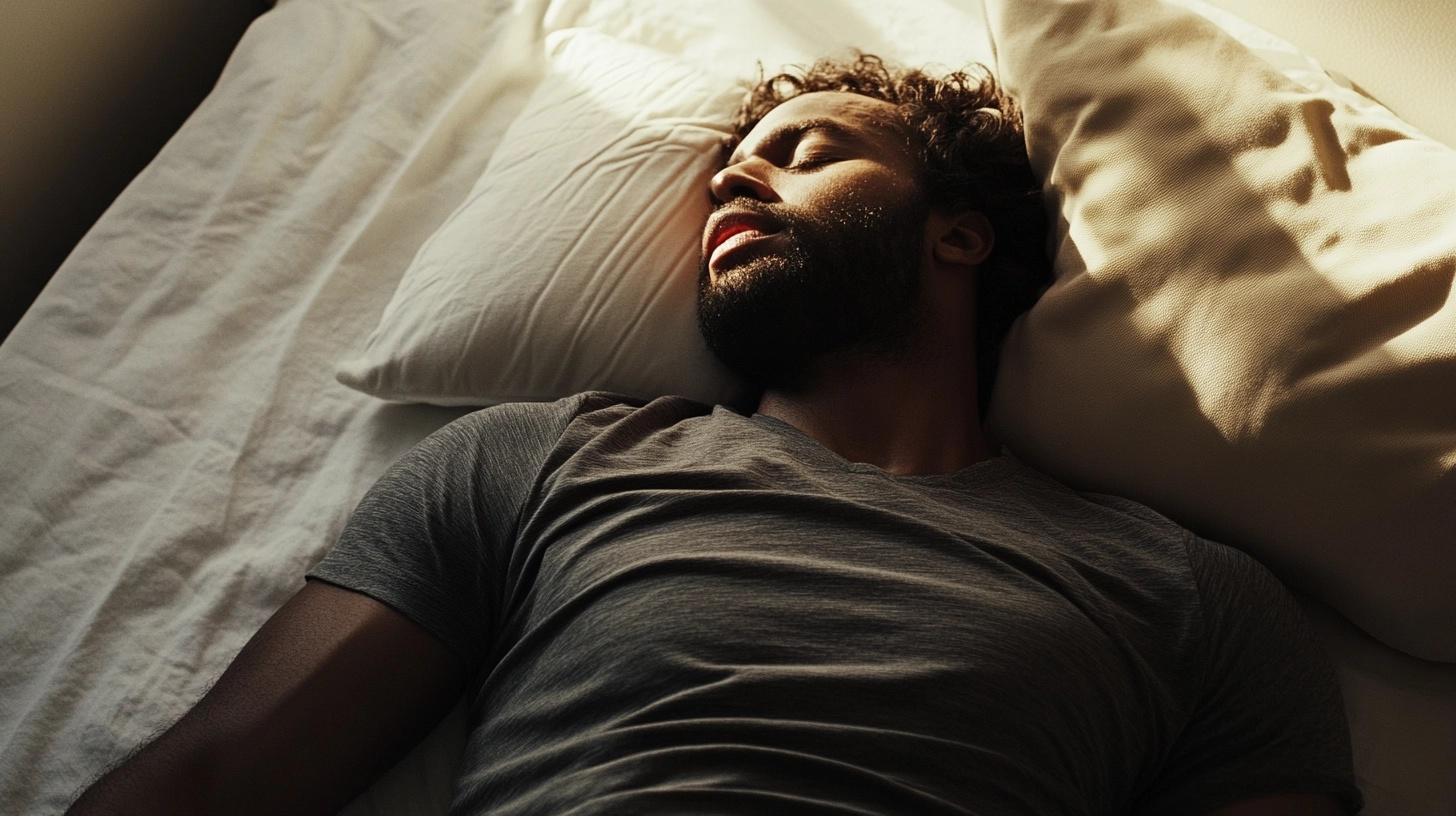
Sweat can feel like a sticky nuisance, but it’s often a healthy sign that the body is working hard to regulate body temperature. However, if you’re waking up every night drenched in sweat, soaking your sheets and PJs, it may be worth investigating the underlying causes. Let us dive into frequently asked questions on night sweats – you just might find the perspiration revelation you’ve been looking for!
1. Is it normal to sweat during sleep?
There is a difference between night sweats and sweating at night. It’s normal for people to occasionally sweat during sleep, especially if their bedroom is too hot or their blankets are too heavy. This sweating is typically caused by overheating and is generally mild and usually unrelated to a medical condition. This type of sweating is different from night sweats, which tend to be more frequent and intense.
2. What exactly are night sweats?
Night sweats entail excessive sweating during sleep; repeated, ongoing instances of extreme perspiration that can drench bedding and clothes. Night sweats may be an indicator of an underlying medical condition. According to the Cleveland Clinic, “Night sweats occur when blood vessels expand (causing increased blood flow) and then contract. This causes a sudden wave of heat that spreads throughout the body, followed by sweating, reddening of the skin, and rapid heartbeat. Often, the night sweats are followed by a cold chill.”
3. How common are they?
As mentioned above, it’s common to sweat at night every now and then. Around 40% of participants in one study reported experiencing night sweats, especially in pre-menopausal women. The same study concluded that night sweats are more common than we think and under-reported.
4. What is the difference between night sweats and hot flashes?
Hot flashes are sudden feelings of intense warmth that can happen at any time of the day. Unlike night sweats, they may not provoke excessive sweating, are mainly caused by hormonal changes, and are felt in the whole upper body rather than just in the head and chest.
5. Why do I sweat in my sleep? What causes it?
Everybody is unique, shaped by their genetic chemistry and personal experiences, and so the cause of night sweats will vary for each individual. Only a doctor can determine and diagnose the root cause, but there are a handful of common conditions that appear frequently:
Menopause
Women going through menopause experience significant changes in their estrogen and progesterone levels (influential hormones), which leads to one of menopause’s most common symptoms: hot flashes. Menopause night sweats and hot flashes come on suddenly, making you feel intensely flushed and overheated. They typically last for a few minutes and can appear many times throughout the day, even when you’re sleeping.
Menopause night sweats, hot flashes, and other menopausal symptoms can interrupt a woman’s sleep for years. 26 % of menopausal women experience severe sleep-disrupting symptoms that impact daytime functioning.
Medications
Some medications list night sweats as a known side effect, including select antidepressants, hormone treatments, steroids, nonsteroidal anti-inflammatory medications like ibuprofen, pain relievers, insulin for diabetes, some chemotherapy drugs… The list is almost infinite.
If you are taking some of these medicines and are suffering from night sweats, check with your healthcare provider if it could be a side effect of your medication.
Infections
When our body is fighting an infection, we often develop a fever and can feel overheated, which in turn can trigger night sweats. They are commonly noted as symptoms of tuberculosis, human immunodeficiency virus (HIV), as well as bacterial and fungal infections.
Stress and anxiety
Similar to how they can cause sweating during the day, stress and anxiety can lead to night sweats, especially in people who regularly experience night terrors or panic disorders. In general, an overactive mind stimulates the body and mind, which can make the sweat glands more responsive.
Moreover, sweats can be also triggered by excessive tossing and turning if we can’t fall asleep or suffer from insomnia.
Hormonal changes
Hormone imbalances and changes to the endocrine system may lead to night sweats. This can include pheochromocytoma, a hormone-secreting tumor that occurs in adrenal glands; carcinoid syndrome, which is when a tumor produces excessive amounts of serotonin in someone with liver metastasis; and hyperthyroidism, which is an overproduction of the thyroxine hormone by the thyroid.
It is also important to remember that the part of the brain that regulates our body temperature, the hypothalamus, is also part of the endocrine system. And suffering a dysfunction there can also be an underlying cause of hormonal changes and night sweats.
Caffeine, alcohol and spicy food
Caffeine, alcohol, and drug use can also cause spikes in body temperature, thus increasing the likelihood of night sweats. For example, alcohol dilates the blood vessels, which can lead to sweating. And certain spicy foods can trigger the same nerves that make you feel warm. Try to avoid these at least a few hours before bedtime. You can also track your consumption and its impact on your sleep with the sleep notes feature in the Sleep Cycle app.
Other potential causes
The list of other possible causes of night sweats is long. A few examples include untreated sleep apnea, which has been associated with nocturnal sweating as it increases the blood pressure; Hyperhidrosis – a harmless condition that makes you sweat excessively; Gastroesophageal Reflux Disease (GERD) which causes heartburn and indigestion; or hypoglycemia (low blood sugar), which could be a culprit, and also certain neurological conditions and cancer treatments. Always speak to your doctor for a proper diagnosis.
6. How can I stop my night sweats?
Treatment for night sweats must be personalized to be truly effective, but popular methods include:
- A change in your sleeping environment. Ensure you are keeping your bedroom cool (around 18-20 degrees Celsius or 65-68 Fahrenheit) since warmer temperatures can trigger night sweats. Wearing loose clothing that will not trap heat, and sleeping with lighter, breathable bedding can also help.
- Cognitive-behavioral therapy (CBT). A form of talk therapy most commonly used to treat depression, CBT has the potential to reduce the frequency of hot flashes and night sweats in menopausal women, improving their sleep quality.
- Medications. If your night sweats are a side effect of your medication, alternative medication or dosage options may alleviate them. Additionally, medications, hormone therapies, and supplements for menopausal women can reduce night sweats. Talk to your doctor about which treatment plan is right for you.
- Meditation before bed: If stress and anxiety are causing your night sweats, meditating before bed can help ease your mind and relax your body. If you don’t know where to start, check the guided sleep meditations in the Sleep Cycle app.
- Maintain a healthy weight: there are some studies that have identified a link between excessive body weight and increased episodes of night sweats. Being overweight can be a risk factor for conditions that affect sleep, like sleep apnea.
- Avoid trigger foods and drinks: Avoid alcohol, caffeine, spicy food and hot beverages. If you consume any of these, pay attention to how they make you feel afterwards. It’s also recommended to give your body enough time to properly digest your food before going to bed and add foods that enhance sleep to your diet.
- Stop smoking: besides the health impact that smoking has, it’s also associated with night sweats and hot flashes (especially among women) due to the effect it has on hormones.
7. When should I see a doctor about my night sweats?
Are you worried about your night sweats? It may feel like an uncomfortable topic to broach, but if you are experiencing frequent, persistent night sweats which are affecting your sleep quality, or if they are accompanied by other symptoms- consult with a medical professional. They can help investigate the cause and help create a tailored treatment plan for you.
8. What can I do if my child starts sweating at night?
Children are not so different from adults regarding night sweats – although usually harmless, they can be associated with the presence of sleep-related symptoms (night terrors) and respiratory, atopic diseases.
To keep your child comfortable at night and help the night sweats you can try to:
- Keep the bedroom refreshed, at a cool temperature. You can cool the room with a fan before putting your child to bed.
- Get moisture-wicking PJs and bedsheets – this will help absorb the moisture and sweat and keep the mattress dry.
- If possible, try to avoid situations that you know cause a stressful or strong emotional reaction within your child.
- Allow your child time to wind down before bedtime, avoiding exercise or energetic playtime.
—
If you believe your night sweats could be tied to a medical condition, alleviating your night sweats will go hand-in-hand with properly treating your condition. Seek counsel from a medical professional. As common as night sweats are, they are also irritating, unpleasant, and could be your body’s way of telling you something. Listen carefully and try to stay cool!

